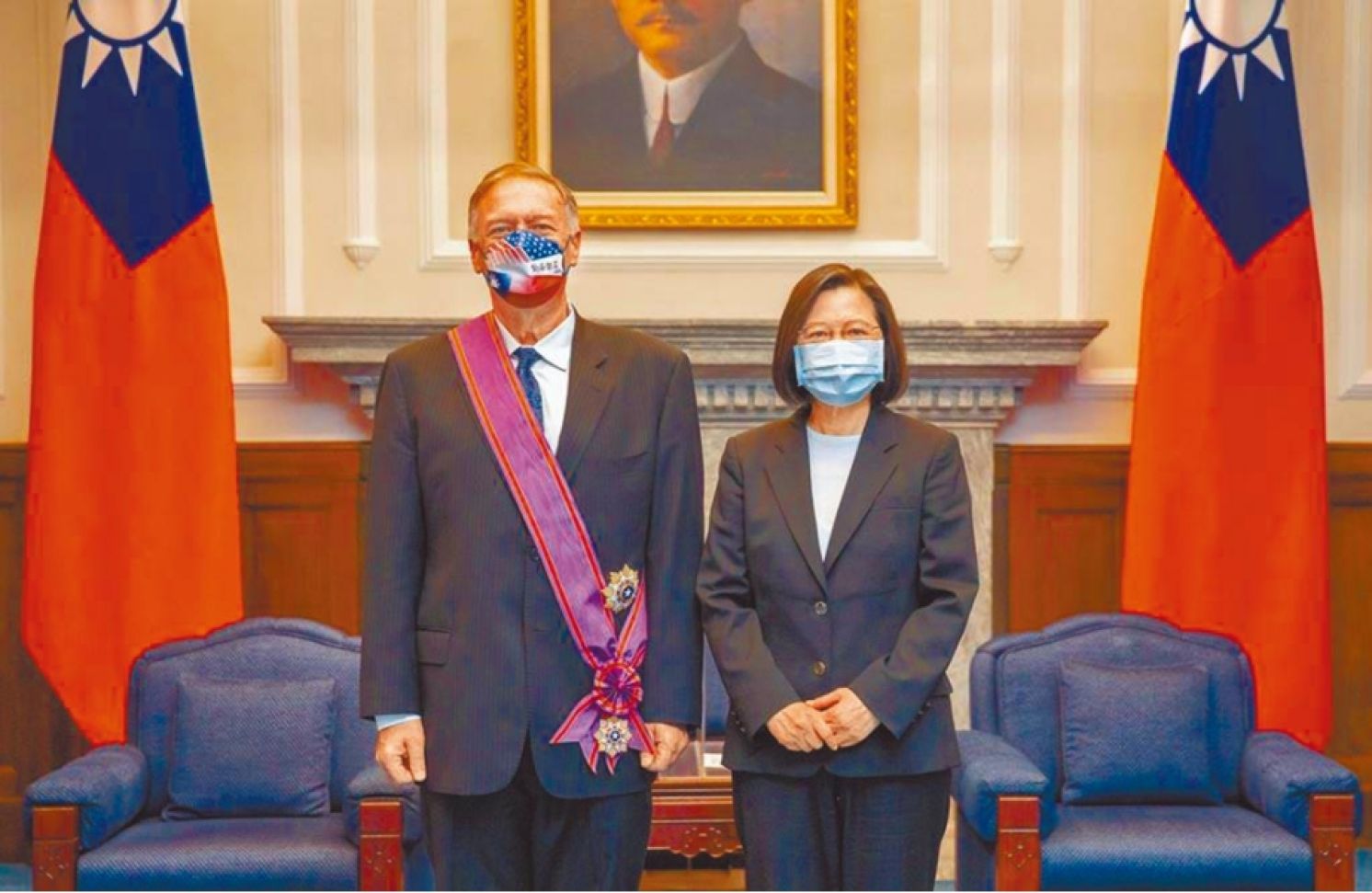
Pompeo's Dual Recognition Would Shake Cross-Strait Relations
By Ho Szu-shen
China Times, March 5, 2022
President Joe Biden of the United States sent an informal bipartisan delegation of former top national security and diplomatic officials to Taiwan to meet with President Tsai Ing-wen and Chairman Eric Chu of the Kuomintang (KMT). At the same time, former Secretary of State Mike Pompeo also visited Taiwan at the invitation of the government sponsored Prospect Foundation. At a time of conflict between Russia and Ukraine, it is interesting to look closer at the significance of these visits.
As the security conflict between Russia and the North Atlantic Treaty Organization (NATO) has become more heated over Ukraine, the relationship between the United States and China has become more complicated. The international community has drawn parallels between the Ukraine issue and the Taiwan issue, adding to the uneasiness of cross-strait relations. But the Taiwan Strait is not the Black Sea, and Xi Jinping is not Putin. It is difficult to predict, extrapolating from the Ukrainian situation, the reaction of the U.S.-Japan alliance over a conflict in the Taiwan Strait.
After the end of World War II and through the Cold War, the United States and Soviet Union have not confronted each other for 40 years. However, the "Eastern Expansion of NATO" has finally made Russian President Vladimir Putin draw a red line with Ukraine, resolutely oppose its accession to NATO, and advance troops into Ukraine — bringing the United States and Russia closest to war it has been in recent history.
President Biden is cautious about sending troops to Ukraine, cautious about breaking the "long peace." If the U.S.-Russian conflict expands into a European bloc-style war between NATO and Russia, "Pax Americana” shall be reduced to nothing. This is not in the strategic interests of the United States and the American establishment, as such military intervention is not in the cards.
The two major parties in Taiwan welcomed President Biden's unofficial delegation to Taiwan, which not only sends a clearer diplomatic message through direct dialogue between Taiwan and the United States, but also avoids misjudgment between the two sides of the Taiwan Strait at a time when the conflict between Russia and Ukraine rages. However, Mr. Pompeo's visit to Taiwan seems to be different from that of Mr. Biden, which reveals a different plan from that of the American establishment.
Mr. Pompeo criticized Mr. Biden for adopting a "strategic ambiguity" towards Ukraine, which encouraged Russia to invade Ukraine. He then advocated that the sovereignty of the Republic of China (Taiwan) should be recognized as a fact, that doing so is the only way to achieve clarity and certainty. Mr. Pompeo acknowledged that people may consider this provocation but stated instead that real provocation to the powerful is lack of determination.
The statement made by Mr. Pompeo obviously overstepped the framework of the U.S-China “Three Communiqués” and the Taiwan Relations Act. Even if the Republican Party returns to power in 2024—or even if Mr. Pompeo becomes the next president of the United States—it is unlikely that he will be able to administer this strong medicine against China.
Although Mr. Pompeo believes that diplomatic recognition of the Republic of China (Taiwan) has nothing to do with Taiwan's future independence, considering it instead to be a statement of fact — if this becomes the new American policy towards Taiwan, it will undoubtedly cost the United States greatly in terms of diplomacy with China, ultimately endangering the region further. Although Beijing has flexibility in its policy toward Taiwan, the "red line" is clear. Mr. Pompeo's "dual recognition" may just give Beijing the excuse it needs to use force against Taiwan.
And if that happens, regardless of whether the U.S.-Japan alliance will intervene, Taiwan will be pushed to war. Perhaps Mr. Pompeo wants to kill two birds with one stone by drawing China and Russia both into the area surrounded by the Western camp — thereby pushing the world toward the Cold War order centered around the United States. But China's economic and trade relations with the world are much more interconnected, different from the energy-based economic relations between Russia and Europe and the United States.
For now, the Western countries can tolerate the rise in the price of energy and raw materials caused by the sanctions against Russia. However, the breakup of China's market will cause the breakdown of globalization: how many are willing to follow the United States down that road?
The author is a distinguished professor of Japanese Studies and director of the Center for Japanese and East Asian Studies at Fu Jen Catholic University.
From: https://www.chinatimes.com/newspapers/20220305001043-260109?chdtv